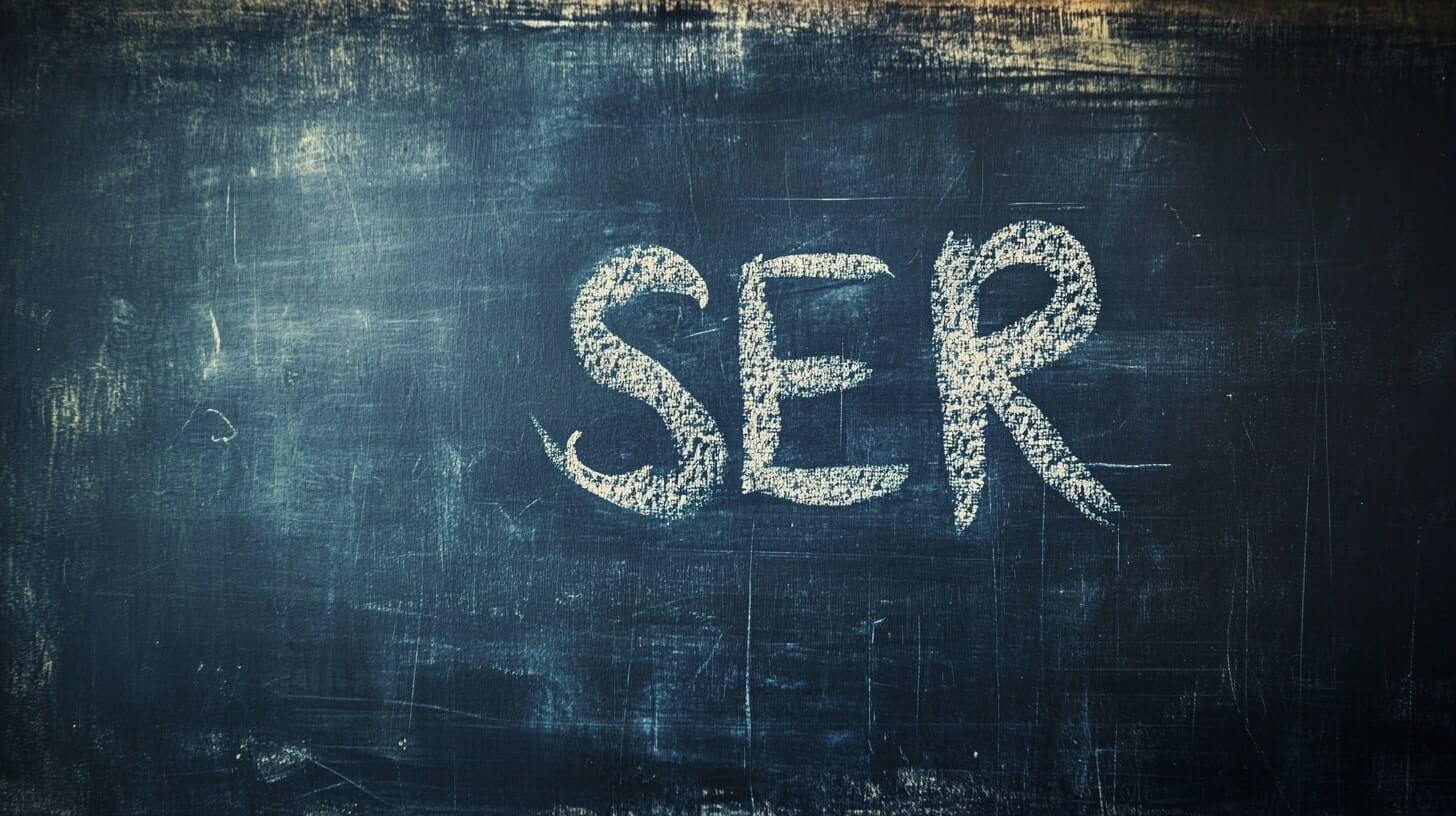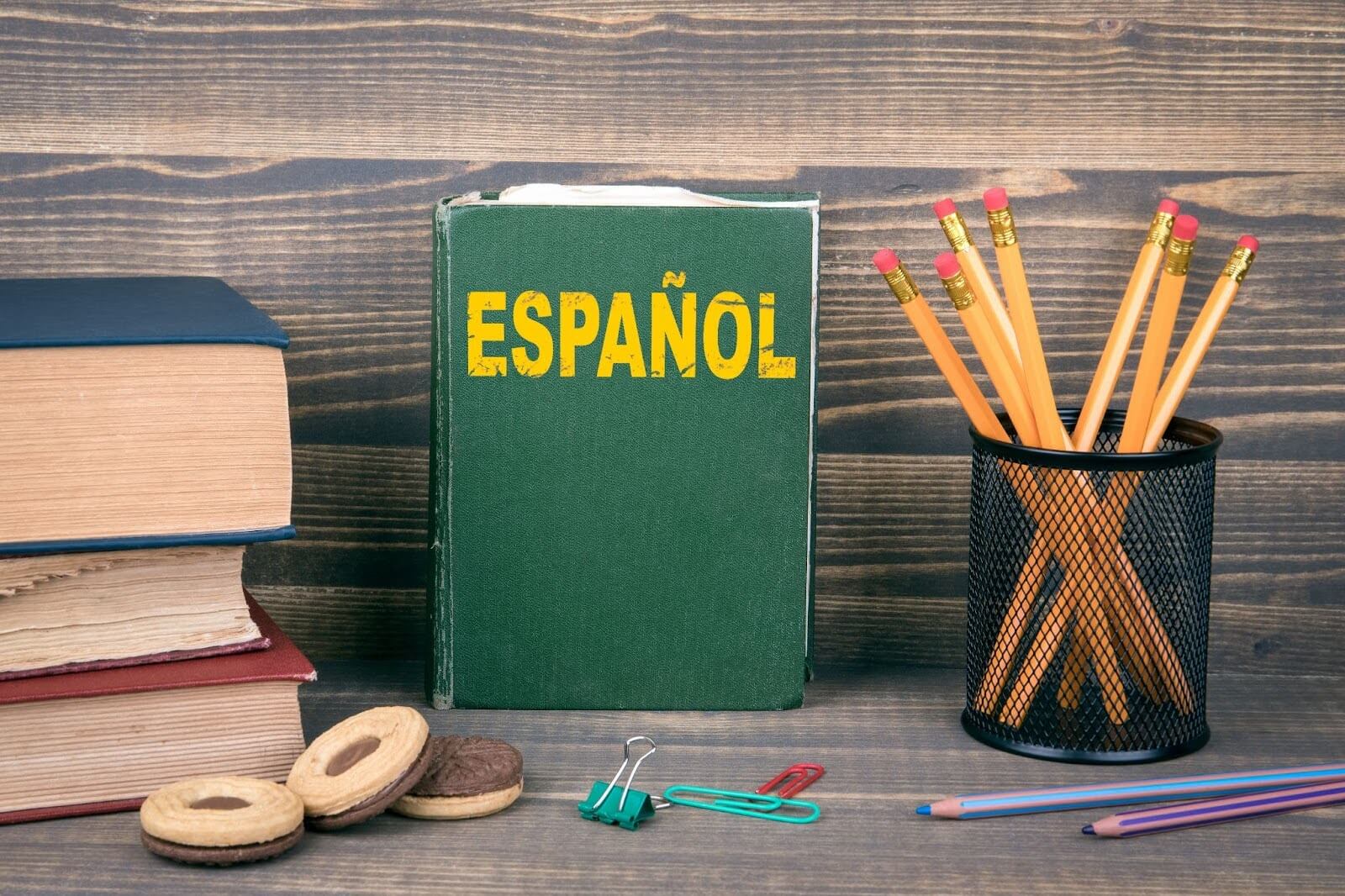To be or not to be? ¿Ser o no ser? Are you as you want to be? Possibly, when it comes to the verb "ser" in Spanish, it generates many doubts to understand what its conjugation is about. Indeed, the ser conjugations are fundamental for you to learn as a Spanish student. You will use them every day you speak Spanish.
Each tense of "ser" will lead us to describe a particular life situation, making it a key verb if you want to achieve fluent communication. If you are concerned about the complexity of this topic, there is no need to rush! We have prepared a simple and practical guide that will make you an expert in ser imperfect tense conjugation and much more.
Keep reading and get ready to be the best!

Uses of the Verb "Ser" in Spanish
The first thing you must understand is that the verb "ser" is nothing but the verb "to be". Simple, right? In the Spanish language, it is mostly used to refer to permanent facts over time.
Among other things, you will find that the verb "ser" exhibits great versatility compared to other verbs, but this does not mean it is impossible to master. Take a look at these examples:
- Soy de Estados Unidos.
- Él es profesor de español.
- Nosotros somos estudiantes de gramática.
Unlike other verbs in Spanish, the verb "ser" is extremely irregular, as it does not follow any particular conjugation rules. Remember that "ser" is not the same as "estar" in this context; each is used in different scenarios, even though they are both translated into English as “to be”.
How to Become an Expert at Conjugating "Ser"?
Now that you know the key aspects of the verb "ser" in Spanish, it is necessary to advance in your learning on this conjugation journey.
There are many verb tenses, such as the ser imperfect conjugation, and this is precisely what we will explain to you simply in the following sections. Are you ready to embark on this journey? Then there's no time to waste.
Indicative Verb Tenses of the Verb "Ser"
The indicative verb tense allows us to talk about specific moments. Within this grammatical form, there are several verb tenses, which we will see right now.
As it is an irregular verb, its root changes in most verb tenses, so it is important to pay attention to its spelling and pronunciation.
Present Indicative Verb "Ser"
The first ser conjugation you'll learn today is the present indicative, which is used to talk about any fact that is happening right now or that may occur in the near future.
- Yo soy.
- Tú eres.
- Ella/Él/Usted es.
- Nosotros somos.
- Vosotros sois.
- Ellos / Ustedes son.
Examples with sentences:
- Yo soy cantante de jazz.
- Ella es bailarina de ballet.
Preterite Indicative Verb "Ser"
The ser preterite is another key conjugation that you cannot overlook when communicating in Spanish. This form of ser preterite conjugation will help you talk about specific past events.
- Yo fui.
- Tú fuiste.
- Ella/Él/Usted fue.
- Nosotros fuimos.
- Vosotros fuisteis.
- Ellos/Ustedes fueron.
Examples with sentences
- Él fue el encargado del discurso de graduación el año pasado. / He was in charge of the graduation speech last year.
- Nosotros fuimos buenos amigos en la infancia. / We were good friends in childhood.

Imperfect Indicative Verb "Ser"
The ser imperfect is of great importance when you want to describe a recurring action that took place in the past or the description of activities you used to do. This ser imperfect conjugation is also known as the "imperfect past".
- Yo era.
- Tú eras.
- Ella/Él/Usted era.
- Nosotros éramos.
- Vosotros erais.
- Ellos/Ustedes eran.
Example with sentences:
- Nosotros éramos los organizadores de la fiesta de fin de año.
- Yo era el primero en llegar al salón todos los días.
Present Indicative Continuous Verb "Ser"
This form of ser conjugation is key if you want to talk about a situation that is happening at that moment or that is occurring continuously. It is also known as the "present progressive".
- Yo estoy siendo.
- Tú estás siendo.
- Ella/Él/Usted está siendo.
- Nosotros estamos siendo.
- Vosotros estáis siendo.
- Ellos/Ustedes están siendo.
Example with sentences
- Yo estoy siendo mesero por las noches después de clases.
- Nosotros estamos siendo el mejor equipo de la clase.
Informal Future Indicative Verb "Ser"
This type of ser conjugation corresponds to describing events that will happen in the near future (not distant). Generally, it is also known as the "near future".
- Yo voy a ser.
- Tú vas a ser.
- Ella/Él/Usted va a ser.
- Nosotros vamos a ser.
- Vosotros vais a ser.
- Ellos/Ustedes van a ser.
Examples with sentences:
- Yo voy a ser el primero en dominar la conjugación del verbo “ser”. / I am going to be the first to master the conjugation of the verb "ser".
- Laura va a ser quien compre la torta para el cumpleaños de Luis. / Laura is going to be the one who buys the cake for Luis' birthday.

Future Indicative Verb "Ser"
Specifically, this ser conjugation is used if you want to talk about a future event that will happen.
- Yo seré.
- Tú serás.
- Ella/Él/Usted será.
- Nosotros seremos.
- Vosotros seréis.
- Ellos/Ustedes serán.
Examples with sentences:
- Yo seré chef cuando termine mis estudios de cocina. / I will be a chef when I finish my cooking studies.
- Nosotros seremos condecorados por nuestra labor como soldados de guerra. / We will be decorated for our work as war soldiers.
Conditional Indicative Verb "Ser"
This type of ser conjugation is valid whenever you refer to hypothetical situations in the future or, in other words, probabilities. This is also known as the "simple conditional".
- Yo sería.
- Tú serías.
- Ella/Él/Usted sería.
- Nosotros seríamos.
- Vosotros seríais.
- Ellos/Ustedes serían.
Examples with sentences:
- Posiblemente, yo sería un buen médico porque tengo vocación. / Possibly, I would be a good doctor because I have vocation.
- Nosotros seríamos la familia perfecta si vivimos juntos. / We would be the perfect family if we lived together.
Present Perfect Indicative Verb "Ser"
This ser conjugation is used when talking about events that started a short time ago but are still happening or recent situations. In Spanish, it is also known as the "present perfect".
- Yo (he sido).
- Tú (has sido).
- Ella/Él/Usted (ha sido).
- Nosotros (hemos sido).
- Vosotros (habéis sido).
- Ellos/Ustedes (han sido).
Examples with sentences:
- Yo he sido estudiante de inglés. // I have been a student of English.
- Ella ha sido expulsada del curso. // She has been expelled from the course.
Past Perfect Indicative Verb "Ser"
This ser conjugation is used to talk about past situations that occurred before others. In Spanish, it is also known as the "pluperfect".
- Yo había sido.
- Tú habías sido.
- Ella/Él/Usted había sido.
- Nosotros habíamos sido.
- Vosotros habíais sido.
- Ellos/Ustedes habían sido.
Examples with sentences:
- Yo había sido un niño travieso antes de entrar al colegio. / I had been a naughty child before entering school.
- Él había sido un gran líder antes de perder las elecciones. / He had been a great leader before losing the elections.
Future Perfect Indicative Verb "Ser"
The ser conjugation in future perfect indicative talks about a future situation that will happen as a consequence of another action.
- Yo habré sido.
- Tú habrás sido.
- Ella/Él/Usted habrá sido.
- Nosotros habremos sido.
- Vosotros habréis sido.
- Ellos/Ustedes habrán sido.
Examples with sentences:
- Yo habré sido el mejor de mi clase cuando saque la calificación más alta. // I will have been the best in my class when I get the highest grade.
- Para el año siguiente, los niños habrán sido vacunados para prevenir contagios de varicela. / By next year, the children will have been vaccinated to prevent chickenpox contagion.

Conditional Perfect Indicative Verb "Ser"
This form of ser conjugation is used to talk about an action that could have happened if it hadn't been for another event. It is also known as the "conditional perfect".
- Yo habría sido.
- Tú habrías sido.
- Ella/Él(Usted habría sido.
- Nosotros habríamos sido.
- Vosotros habríais sido.
- Ellos/Ustedes habrían sido.
Examples with sentences:
- Ellos habrían sido felices juntos, pero se divorciaron. / They would have been happy together, but they got divorced.
- Yo habría sido buen locutor, de no ser por la enfermedad de mi garganta. / I would have been a good announcer if it weren't for my throat illness.
Present Subjunctive Verb "Ser"
Now that you know the basic concepts of the ser conjugation in indicative and ser in imperfect, it's time to take your knowledge to the next level. Right now, we'll see which subjunctive verb tenses apply to this important verb.
While they are not verbs used too much in English, they are vital in Spanish. Without further ado, let's see everything about it in the following section.
The verb 'ser' in the present subjunctive"
The conjugation of ser in present subjunctive is used when you need to talk about situations of hope or desires, as well as uncertainties.
- Yo (sea).
- Tú (seas).
- Ella/Él/Usted (sea).
- Nosotros (seamos).
- Vosotros (seáis).
- Ellos/Ustedes (sean).
Example with sentences
- Ojalá mi profesor sea un experto en el idioma español. // I hope my teacher is an expert in the Spanish language.
- Espero que ella sea la ganadora del concurso de canto. // I hope she is the winner of the singing contest.
Imperfect Subjunctive Verb "Ser"
The ser imperfect subjunctive is a fairly simple conjugation that you can use when you want to express unlikely or uncertain situations or to express an (emotional) opinion about something.
- Yo (fuera).
- Tú (fueras).
- Ella/Él/Usted (fuera).
- Nosotros (fuéramos).
- Vosotros (fuerais).
- Ellos/Ustedes (fueran).
Example with sentences
- Yo fuera millonario si ganara la lotería. / I would be a millionaire if I won the lottery.
- Fuéramos más unidos de no ser por las riñas constantes. / We would be closer if it weren't for the constant quarrels.
Future Subjunctive Verb "Ser"
This ser conjugation is valid if you need to refer to probable (hypothetical) situations that will happen in the future.
- Yo (fuese).
- Tú (fueses).
- Ella/Él/Usted (fuese).
- Nosotros (fuésemos).
- Vosotros (fueseis).
- Ellos/Ustedes (fuesen).
Example with sentences
- Yo fuese un cantante famoso si voy al karaoke seguido. / I would be a famous singer if I went to karaoke often.
- Ella fuese la mejor escritora de su clase porque se esfuerza mucho. / She would be the best writer in her class because she works hard.
Present Perfect Subjunctive Verb "Ser"
In this case, the conjugation is used to talk about past situations that are still linked to the present, as well as to allude to a fact that would happen at a specific point in the future.
- Yo (haya sido).
- Tú (hayas sido).
- Ella/Él/Usted (haya sido).
- Nosotros (hayamos sido).
- Vosotros (hayáis sido).
- Ellos/Ustedes (han sido).
Example with sentences
- Ojalá yo haya sido el ganador del sorteo. / I hope I have been the winner of the draw."
- Te agradezco que hayas sido honesto conmigo desde el comienzo. / I thank you for having been honest with me from the beginning.
Past Perfect Subjunctive Verb "Ser"
It refers to hypothetical events that took place before other past actions.
- Yo (hubiera sido).
- Tú (hubieras sido).
- Ella/Él/Usted (hubiera sido).
- Nosotros (hubiéramos sido).
- Vosotros (hubierais sido).
- Ellos/Ustedes (hubieran sido).
Examples with sentences:
- Yo hubiera sido más paciente y aún conservaría mi turno. / I would have been more patient and would still have my turn.
- Pudimos haber ganado el partido, si hubiéramos sido más unidos. / We could have won the game, if we had been more united.
Future Perfect Subjunctive Verb "Ser"
This conjugation will help you express hypothetical or uncertain future events. In Spanish, it is known as the "future perfect subjunctive".
- Yo (hubiere sido).
- Tú (hubieres sido).
- Ella/Él/Usted (hubiere sido).
- Nosotros (hubiéremos sido).
- Vosotros (hubiereis sido).
- Ellos/Ustedes (hubieren sido).
Examples with sentences:
- Yo hubiere sido un arquitecto famoso. / I would have been a famous architect.
- Nosotros hubiéremos sido los más populares de la escuela. / We would have been the most popular in school.

Imperative Tenses of the verb "ser"
If you've made it this far, there's not much left to learn, and the good news is that what you've learned so far has probably seemed quite simple. Next, we'll look at the imperative tense of the verb "ser".
Affirmative and Negative Imperative Verb "Ser"
The imperative verb "ser" comes in two forms: affirmative and negative. Firstly, it involves giving an order to someone, and in the second case, it consists of ordering someone not to do a specific action related to the verb.
Take a look at this ser conjugation chart to understand much better:
Imperative Tenses of the Verb "Ser" | |
Affirmative Imperative | Negative Imperative |
Yo - | Yo - |
Tú (sea) | Tú (no seas) |
Ella/Él/Usted (sea) | Ella/Él/Usted (no sea) |
Nosotros (seamos) | Nosotros (no seamos) |
Vosotros (sed) | Vosotros (no seáis) |
Ellos/Ustedes (sean) | Ellos/Ustedes (no sean) |
Examples with sentences:
¡Niños! Seamos más respetuosos al momento de pedir la palabra en clases.
¡No seas pesimista!
Activities to practice and learn:
Now that you master the most important aspects of the ser conjugation, you can do some fun activities that will help you improve your skills and practice ser in the imperfect, as well as everything you have learned so far.
Role-playing game:
With a group of friends, assign a specific role to each person and practice the different verb tenses of the verb ser. For example: “yo soy el doctor”, yo era el paciente”, among others.
Word search:
Choose a verb tense of ser conjugations and design a word search that includes some of these. The purpose of the activity is for your friends to find as many conjugations as possible, which will also help you memorize what you have learned better.
Conjugation memory:
Create memory cards that contain a conjugation and a verb tense. The objective of the activity is for you to find the corresponding conjugation with the different verb tenses.

Test your knowledge of ser conjugations!
Are you ready to put everything you learned about the conjugation of ser to the test? Try this quick test (answers are at the end of this article):
What is the correct conjugation of the verb "ser" in the present indicative for the following sentence: "Yo _____ profesor de español"?
soy
seré
fuiste
2. What is the correct way to conjugate the verb "ser" in the preterite indicative to complete the following sentence: "Ella _____ muy amable conmigo ayer"?
era
es
fue
3. What would be the appropriate way to conjugate the verb "ser" in the future indicative for the following situation: "Yo _____ el mejor ciclista del próximo evento"?
serán
sean
seré
Extra question
Which of these examples of verb tenses belongs to the conjugation of "ser" in the indicative?
Hubiere sido
Hubo sido
Ha sido
Congratulations!!
If you add these types of activities to your daily routine, you can improve your knowledge and practice of the conjugation of "ser" to become a true expert. Learning opportunities are abundant!
Answers: question 1: a) I am, question 2: c) was, question 3: c) will be, extra question: c) has been